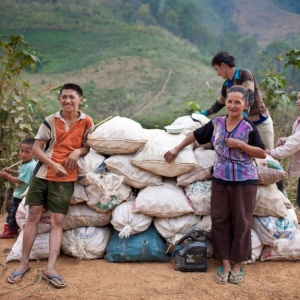
The journal Food and Nutrition Security has produced a special issue on the question: “can science and good governance deliver dinner?’ The guest editor Voster Muchenje provides this overview of its rationale and contents for the FCRN:
At the end of September 2015, more than 150 world leaders at the United Nation (UN) General Assembly in New York set the Sustainable Development Goals (SDG) that should be attained by 2030. Closely linked to this is Agenda 2063, which is a strategic document of the African Union (AU). A common denominator between the UN and AU strategic documents is the need to reduce the proportion of hungry and undernourished people. Although this proportion decreased from 18.7% in 2000 to 11.3% in 2015, regional disparities in the prevalence and severity of food insecurity at national and household levels remain a major challenge. Exponential human population growth has given rise to estimates that some 60-70% more food will be required to feed a population of such a magnitude despite constraints such as limited land availability, the negative effects of climate change and water and energy poverty. Good governance which promotes economic vitality, social justice, human health and environmental health, is required to ensure that all people have access to sufficient nutritious food. Crucial considerations include: a) production; b) distribution; c) consumption and d) governance. Novel approaches, technologies and relevant policies are required for primary crop, horticultural, livestock and aquaculture producers, processors and distributors to enhance the sustainability of production and efficiency of distribution.
The foregoing arguments triggered the need for publishing this special issue of the journal, Food Research International. The scope range embraces factors that have both global and regional impacts. Religion, philosophical world views and access to the media are some of the major factors that are explored: regardless of availability and affordability of foods, faith and philosophy render some unsuitable for consumption by devotees. Modern day media access also significantly influences choice and consumption of food, for example in relation to discussions about dietary fats, as is also discussed.
This special issue also features articles examining how changes in consumption patterns of nutrients respond to price and income changes; biofortification approaches; the use and consumption of underutilised, alternative and indigenous food sources; food safety and sovereignty concerns; and innovative approaches for improving plant and animal production including through DNA-based molecular technology for food authentication and the application of proteomics and genomics; as well as ways of linking local knowledge with Western agricultural science.
All the papers in this special issue have been made freely available for a period of three months (until 19th January) on ScienceDirect™ and can be accessed here.
Read more about food security and nutrition, food sovereignty, development/poverty, , governance and policy, meat and taboos/religious beliefs.







Post a new comment »